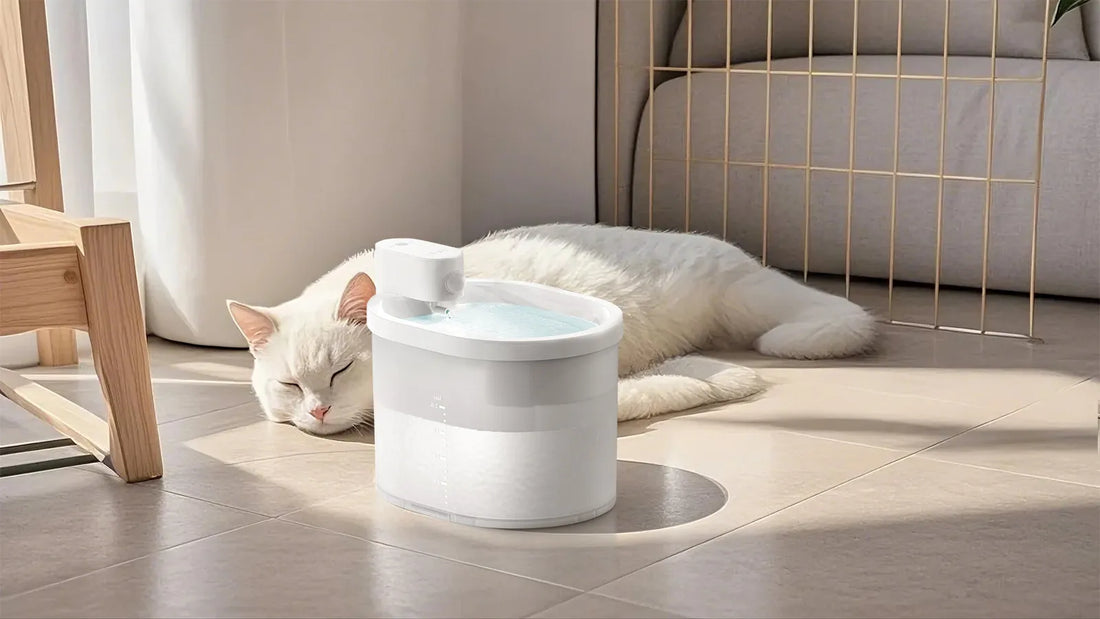Bringing home a 6-week-old puppy is an exciting experience, but it also comes with significant responsibilities, especially when it comes to feeding. Proper nutrition during this critical stage is essential for your puppy's growth, development, and overall health. This article will guide you through everything you need to know about feeding a 6-week-old puppy, from understanding their nutritional needs to establishing a feeding schedule that works for both of you.
Understanding the Nutritional Needs of a 6-Week-Old Puppy
At six weeks old, puppies are in a crucial stage of development. They are transitioning from their mother's milk to solid food, which means their nutritional needs are specific and must be met carefully. Puppies require a diet rich in protein, fats, carbohydrates, vitamins, and minerals to support their rapid growth and high energy levels.
Protein is particularly important as it helps build strong muscles and tissues. Fats provide the necessary energy and support brain development, while carbohydrates offer a quick source of energy. Vitamins and minerals are essential for maintaining a healthy immune system and ensuring proper bone growth.
Choosing the Right Food for Your Puppy
When selecting food for your 6-week-old puppy, it's crucial to choose a high-quality puppy formula specifically designed for their age and size. Puppy food is formulated to meet the unique nutritional needs of growing dogs, providing the right balance of nutrients.
Look for food that lists a high-quality source of protein, such as chicken or lamb, as the first ingredient. Avoid foods with excessive fillers, artificial additives, or by-products, as these can be harmful to your puppy's health. If you're unsure about which food to choose, consult your veterinarian for recommendations.
Transitioning from Mother's Milk to Solid Food
At six weeks old, most puppies are beginning to wean off their mother's milk and transition to solid food. This process should be gradual to avoid digestive upset. Start by introducing a small amount of softened puppy food mixed with warm water or puppy milk replacer to create a mushy consistency.
Allow your puppy to explore the food at their own pace. Over the next few weeks, gradually reduce the amount of liquid added to the food until your puppy is eating it in its solid form. Monitor your puppy's reaction to the new food and adjust the transition pace as needed.
Establishing a Feeding Schedule
Consistency is key when it comes to feeding a 6-week-old puppy. At this age, puppies have small stomachs and high energy needs, so they require frequent meals throughout the day. A typical feeding schedule for a 6-week-old puppy includes four meals spaced evenly throughout the day.
Feed your puppy at the same times each day to establish a routine. This not only helps regulate their digestion but also makes house training easier. Be sure to provide fresh water at all times, as puppies can become dehydrated quickly.
Portion Control and Monitoring Weight
It's important to feed your puppy the right amount of food to prevent overfeeding or underfeeding. Overfeeding can lead to obesity and related health issues, while underfeeding can result in malnutrition and stunted growth. Follow the feeding guidelines provided on the puppy food packaging, but keep in mind that these are general recommendations.
Monitor your puppy's weight and body condition regularly. A healthy puppy should have a visible waist and be able to feel their ribs without excess fat covering them. If you notice any significant changes in your puppy's weight or appetite, consult your veterinarian.
Common Feeding Mistakes to Avoid
Feeding a 6-week-old puppy can be challenging, especially for first-time pet owners. Here are some common mistakes to avoid:
- Feeding Adult Dog Food: Puppies have different nutritional needs than adult dogs, so it's essential to feed them a formula specifically designed for puppies.
- Overfeeding Treats: While treats can be a useful training tool, they should not make up a significant portion of your puppy's diet. Too many treats can lead to obesity and nutritional imbalances.
- Inconsistent Feeding Schedule: Puppies thrive on routine, so it's important to feed them at the same times each day. Inconsistent feeding can lead to digestive issues and behavioral problems.
- Ignoring Hydration: Always provide fresh water for your puppy, especially during meal times. Dehydration can be dangerous for young puppies.
Special Considerations for Small and Large Breeds
The nutritional needs of puppies can vary depending on their breed size. Small breed puppies have faster metabolisms and may require more calorie-dense food to meet their energy needs. On the other hand, large breed puppies grow at a slower rate and need a diet that supports controlled growth to prevent joint and bone issues.
If you have a small or large breed puppy, look for food specifically formulated for their size. These formulas are tailored to meet the unique needs of different breeds, ensuring your puppy gets the right balance of nutrients.
When to Consult a Veterinarian
While this guide provides general recommendations for feeding a 6-week-old puppy, every puppy is unique. If you have any concerns about your puppy's diet, growth, or health, it's always best to consult your veterinarian. They can provide personalized advice based on your puppy's specific needs and help you create a feeding plan that supports their development.
Feeding a 6-week-old puppy may seem daunting at first, but with the right knowledge and approach, you can ensure your furry friend grows up healthy and strong. By understanding their nutritional needs, choosing the right food, and establishing a consistent feeding schedule, you'll set the foundation for a lifetime of good health. Remember, your puppy relies on you for their well-being, so take the time to make informed decisions about their diet and care.
Ready to give your 6-week-old puppy the best start in life? Start by implementing these feeding tips today and watch your little companion thrive. Your efforts now will pay off in the form of a happy, healthy, and energetic dog for years to come!













